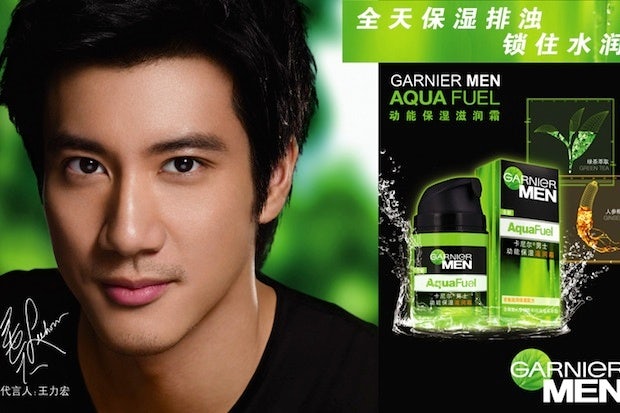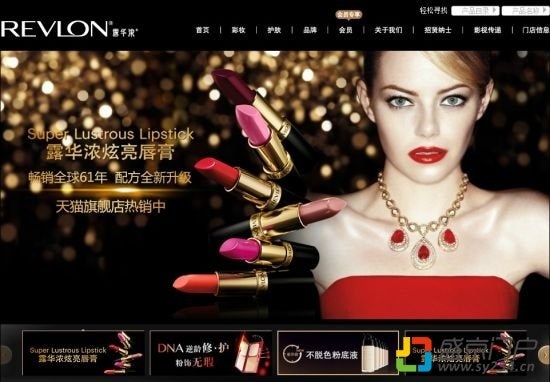
Even superstar Leehom Wang couldn't save Garnier in China.
China’s cosmetics industry saw double-digit growth in 2013, but in the past two weeks, both Revlon and L’Oreal’s Garnier announced that they will be pulling out of the mainland market altogether due to low sales. The reasons both brands were unable to resonate with Chinese consumers were similar, but the consequences will be much higher for Revlon in the long run.
Revlon announced on December 31 that it would be withdrawing from the market after first entering in 1996, while L’Oreal announced that it would be pulling Garnier from the mainland about a week later. As can be expected, the brands were vague about their reasons for withdrawal in their official press releases. While L’Oreal stated that it wished to focus on its other, more successful companies such as its flagship brand, Revlon's spokeswoman said that the move was due to a calculation of "the opportunity in China versus the cost of doing business there."
The decisions seem strange, however, considering the fact that China's cosmetics market is growing rapidly. It more than doubled from 2008 to 2012, when it was valued at $22.8 billion, and grew at an estimated 10 percent in 2013. This number may be slower than last year's 15 percent, but 10 percent certainly isn’t a rate that should send companies packing. Obviously, Revlon and Garnier were unable to take advantage of this growth: Revlon’s Asia-Pacific sales were down 3.5 percent in 2013, totaling $166 million, and and China occupied a relatively small position in regards to both companies’ overall sales. The mainland only accounted for 2 percent of Revlon’s total sales, while Garnier accounts for 1 percent of parent company L’Oreal’s China sales.

A screenshot of Revlon's Chinese site.
While cosmetics are popular in China, these companies both learned the hard way that Chinese consumers won’t buy any foreign brand that appears on the shelves. The reason that both Revlon and Garnier failed to succeed with customers comes down to an issue of brand positioning. In the case of Revlon, the company sold its products at both high-end makeup counters and mid-tier retailers, which led to a perception among luxury consumers that it wasn’t of high quality, while the price point caused it to be passed over among average consumers for more inexpensive brands. In addition, the company failed to innovate with products for the China market, instead opting to sell only its foreign items.
Meanwhile, L’Oreal wasn't able to locate a proper niche for Garnier, which was the company's only low-end brand in China apart from the Chinese brand Mininurse (Xiao huli, 小护理) that it acquired in 2003. “Garnier is not cheap enough and it’s not luxury enough. Chinese consumers are no longer willing to pay a premium for a Western brand unless it is demonstrably better,” Shaun Rein of China Market Research Group told Financial Times.
In the long run, the decision to withdraw is likely to hurt Revlon much more than it will L’Oreal. For L’Oreal, the decision to pull Garnier amounted to removal of dead weight in a year of slower China growth for the company, but the importance of the China market is clear to the company. China is still the brand’s third-largest market, and L’Oreal products account for around 17 percent of China's total cosmetics industry, according to Euromonitor. Revlon, by contrast, was unable to gain a foothold in the market in the almost two decades it's been there. Rather than deciding to restructure its lacking China strategy, the company’s new CEO made the move to cut the company’s losses in order to improve its overall global growth rate in the short term.
While L’Oreal is still going full-speed ahead with the rest of its portfolio in China, including Maybelline, L’Oréal Paris, and Lancôme, as well as eyeing the travel market and Chinese beauty brands, Revlon hopes to focus on its more lucrative regions. However, Chinese consumers' continued obsession with beauty products may have it reconsidering this move in a few years' time.